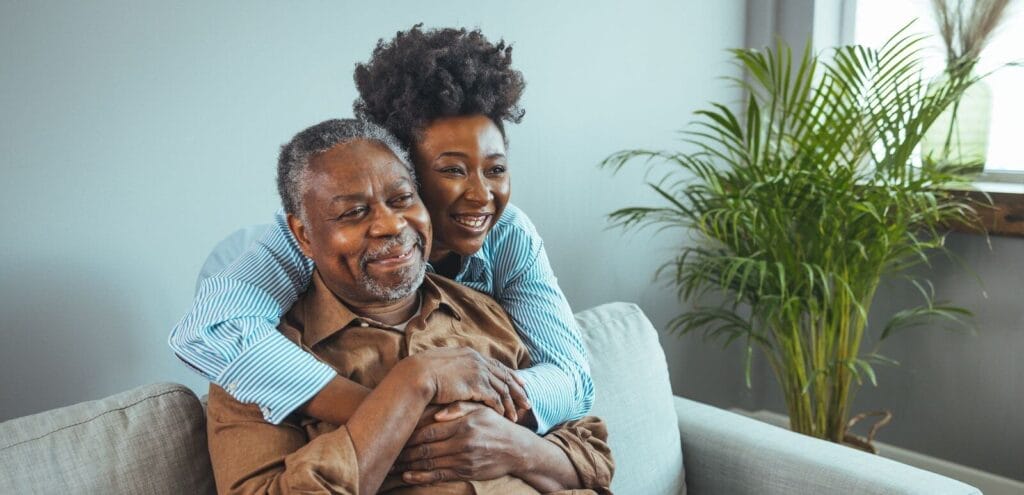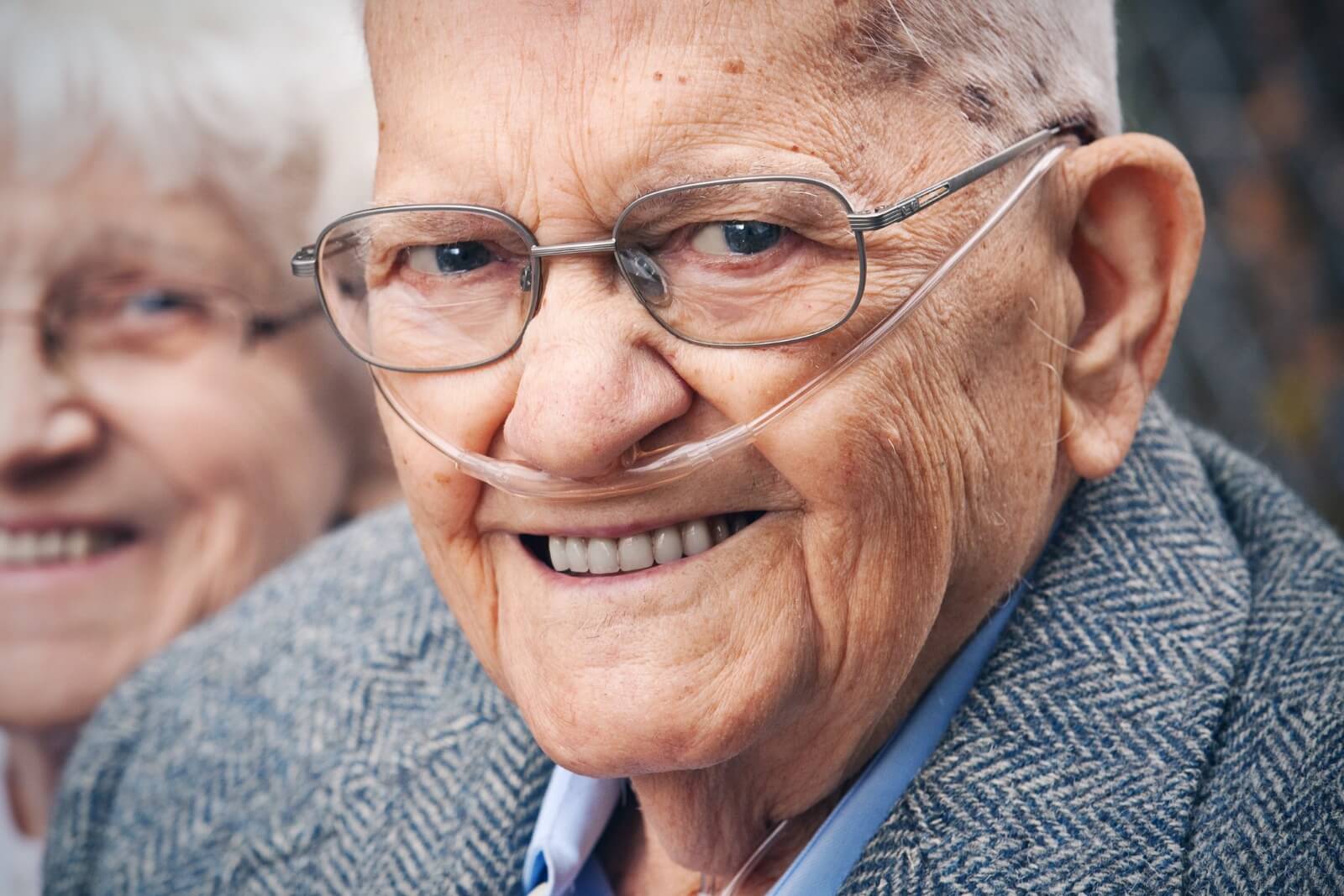
The U.S. Department of Veterans Affairs (VA) has programs and services to help caregivers care for their Veteran loved ones. VA caregiver programs are robust and assist family caregivers in various ways, from education on providing care for their loved one’s condition to VA and community resources on how to care for oneself as a caregiver. A VA caregiver stipend through one program can even help alleviate the financial burden of caregiving. Here, we’ll explore VA caregiver programs and services so caregivers of Veterans can learn how to help their loved ones and also care for themselves.
There are two main caregiver programs through VA’s Caregiver Support Program: the Program of General Caregiver Support Services and the Program of Comprehensive Assistance for Family Caregivers. We’ll explain those two programs below, outlining some of the differences so caregivers can learn which may be more suitable for their situations. Next, we’ll explain a number of additional services, educational programs, and workshops that caregivers can access through VA’s Caregiver Support Program.
Program of General Caregiver Support Services
One of the main caregiver support programs VA offers is the Program of General Caregiver Support Services (PGCSS). This is a program for general caregivers of Veterans. It provides peer support, coaching, training, skills education, online programs, telephone support, and other valuable help to caregivers of Veterans. Through PGCSS, caregivers can also access referrals to get needed help.
Caregivers can enroll in the program if they are a “general caregiver,” which means the Veteran receiving care requires help with at least one activity of daily living or they need supervision because of symptoms related to neurological issues or an injury. There isn’t an application process for this program. Interested caregivers can connect with a VA Caregiver Support Program (CSP) team in their area to complete the enrollment forms and begin accessing the available support.
PGCSS offers caregivers a place to turn when they have questions, need help, or want to receive more education to care for their Veteran loved one properly. PGCSS is helpful to new caregivers in addition to seasoned ones as seniors’ needs change throughout their lives.
Program of Comprehensive Assistance for Family Caregivers
The Program of Comprehensive Assistance for Family Caregivers (PCAFC) is the other main caregiver program VA offers. This program requires application approval, and caregivers in the program can access enhanced support. This robust program covers many areas of assistance that a caregiver might need. Caregivers may qualify for:
- Education.
- Support.
- Resources in the caregiver’s community.
- Respite care.
- Mental health counseling.
- Monthly financial stipends to the primary caregiver.
- Health insurance, if eligible, through the Civilian Health and Medical Program of the Department of Veterans Affairs (CHAMPVA).
- Travel benefits, if eligible.
The program is available to caregivers of eligible Veterans who sustained or aggravated a serious injury or illness in the line of duty, leading to “a single or combined service-connected disability rating of 70% or more.” Caregivers can connect with their local CSP team to apply.
While the caregiver awaits approval, they can enroll in PGCSS to start receiving the support offered in that program.
VA caregiver services
In addition to the two caregiver programs above, several other services can help caregivers of Veterans access resources and support in caring for their loved ones. Here, we’ll explain the other services.
Caregivers FIRST
This is an education and resource service available to all caregivers enrolled in VA’s Caregiver Support Program. The acronym stands for “finding important resources, support, and training,” and that’s exactly what this program does for caregivers. Caregivers FIRST participants have access to four educational and training sessions that, depending on the caregiver’s location, can take place at a VA facility or online. Through the sessions, participants learn:
- Coping skills.
- How to find support near them.
- Strategies for shared decision-making between them and the Veteran.
- How VA care works, including home- and community-based services.
- How to effectively communicate with the Veteran’s health care team of providers.
The program also gives caregivers opportunities to practice the skills they learn in addition to connecting them with other caregivers. This support and connection to other caregivers can alleviate some feelings of isolation that caregivers often experience, empowering them to feel more confident and comfortable in their important roles as people caring for their loved ones.
Building Better Caregivers™ workshop
The Building Better Caregivers™ (BBC) workshop is an interactive online course that caregivers can take. It provides education on caregiving as well as resources. This workshop, developed by Standford University and the National Council on Aging, is for caregivers of Veterans with injuries or serious illnesses, such as dementia, brain injuries, post-traumatic stress disorder, or other conditions. The workshop curriculum helps caregivers learn how to provide the best care for their Veteran loved ones and also care for themselves.
Participants proceed through the course alongside other caregiver participants and interact with trained facilitators. Though the course has a six-week curriculum and participants are grouped with other enrollees, it is asynchronous, meaning caregivers can log onto the online course anytime and don’t need to “attend” the class at specific times or days.
Interested caregivers can visit the Building Better Caregivers™ workshop website to learn if they qualify.
Caregiver self-care/resilience courses
Caregivers can receive more education beyond the BBC workshop. These group self-care sessions provide necessary information about how caregivers can care for themselves while fulfilling their role as a caregiver to a Veteran.
Across four sessions, caregivers learn about communication strategies, stress management, self-care, and more. Individuals enrolled in the self-care course can join whichever sessions they want, whether one or all four.
Peer Support Mentoring Program
VA’s Peer Support Mentoring (PSM) Program pairs a caregiver mentor with a caregiver mentee to help two individuals create a bond that not many fully understand, as caring for a Veteran can present unique challenges.
PSM offers the opportunity for caregivers of Veterans to share their stories and receive guidance from one another. These connections provide a sense of community and unity and allow caregivers to share passions, wisdom, comfort, and skills with other like-minded people.
Caregivers interested in becoming mentors or mentees can contact the Voluntary Services Program at their local VA Medical Center (VAMC) and register as volunteers. Those who become mentors will undergo some training to help maximize the experience for both the mentor and mentee.
VA Caregiver Connect
Caregiver Connect allows Veterans to connect digitally to telehealth visits. When Veterans simply need a check-up or cannot leave their homes, telehealth visits are typically scheduled on their behalf.
Caregivers can utilize this digital connection by joining the video health call to be there with their Veteran and their doctor. Caregiver Connect permits up to five guests to join in on the telehealth visits, including family members of the Veteran.
Resources for Enhancing All Caregivers Health VA program
Caring for someone with a particular illness or condition may be challenging because there is much to learn about while coping with stress. The Resources for Enhancing All Caregivers Health (REACH) VA program helps educate caregivers of Veterans, giving them caregiving tools specific to the Veteran’s condition. This program is for caregivers of Veterans who are living with ALS, dementia, multiple sclerosis, post-traumatic stress disorder, or a spinal cord injury or disorder.
The educational sessions can be in a group or one-on-one and aim to help the caregiver in the areas where they need it most. Typically, a coach provides the training in four sessions over the course of a few months. These coaching sessions can be done in person, over the phone, or via video call.
The CSP team at the Veteran’s local VA facility can assist with enrolling in this program.
Caregiver Health and Well-Being Coaching
While caregivers help their Veteran loved ones manage daily life, it can be a struggle for them to also take care of themselves. VA’s Caregiver Health and Well-Being Coaching gives individualized support to help caregivers with their own well-being. The caregiver partners with a trained CSP team member to create and enact a holistic self-care plan focusing on the caregiver’s physical and mental health.
Caregivers enrolled in the Program of General Caregiver Support Services (PGCSS) or the Program of Comprehensive Assistance for Family Caregivers (PCAFC) can use this service for free.
Caregiver Support Line
When caregivers have questions about available resources or how to cope with their caregiving role, they may not know who to talk to. VA’s Caregiver Support Line is available to caregivers of Veterans who have questions about all CSP services and where to start getting help with caregiving. Caregivers can ask questions about:
- The Caregiver Support Program.
- Getting the right care for their Veteran loved one.
- How to access services, whether through VA or the caregiver’s local community.
- Emotional support for coping with caregiving.
The support line is closed on Sundays, but caregivers can call it at 855-260-3274 during its hours of operation. It is open Monday to Friday from 8:00 a.m. to 10:00 p.m. Eastern and Saturday from 8:00 a.m. to 5:00 p.m. Eastern.
Being a caregiver for a Veteran can create memories that last a lifetime — for both the caregiver and the Veteran. Veterans put their lives on the line for our freedom, and now it is our time to care for them into their senior years.
Caregivers can participate in many programs that yield wonderful benefits and help as they provide home care for their loved ones. By taking advantage of these programs, they can provide essential caretaking practices for their beloved Veterans and even receive monetary benefits for their caretaking assistance.








